#Jewish deli
Explore tagged Tumblr posts
Text

Katz's Deli, 183 Ludlow St. (at Houston), June 1, 1932. Founded in 1888, it is famous for its pastrami on rye sandwich. When the Yiddish Theater was in its heyday, Katz's was a popular hangout for the actors.
Photo: Historic NYC Instagram
#vintage New York#1930s#Katz's Deli#Jewish deli#delicatessen#Lower East Side#pastrami#pastrami sandwich#vintage NYC
222 notes
·
View notes
Text
Zabar's is an iconic market on New York City, best known for its selection of appetizers, bagels, and smoked salmon, and not surprisingly, it has a rich Jewish history. Founded by Ukrainian Jewish immigrants Louis and Lillian Zabar, the almost 90-year-old store bears both the family name and remains family-owned to this day.
Louis Zabar was born in Ukraine in 1901. He fled the pogroms, where his father had been murdered, and arrived in the U.S. in the early 1920s. Lillian Teitlebaum escaped Ukraine and moved in with relatives in Philadelphia. She later relocated to New York City and ran into Louis Zabar, whom she had known from their village in Ukraine. The two married in 1927 and had three children: Saul, Stanley, and Eli.
In 1934, Zabar’s opened its first store on 80th and Broadway. By 1950, Louis was the owner of 10 markets when he passed away. From 1960 to 1994, Louis’s sons, Stanley and Saul, partnered and co-owned Zabar's with Murray Klein, who joined the store in 1953.
Today, Saul and Stanley remain involved in the store’s day-to-day business. Many of Louis and Lillian’s grandchildren and great-grandchildren are involved in different capacities. “Zabar’s was the place to come and see your mother and father, your grandparents, your cousins... the Zabar’s store is the center of the Zabar family,” Stanley said.
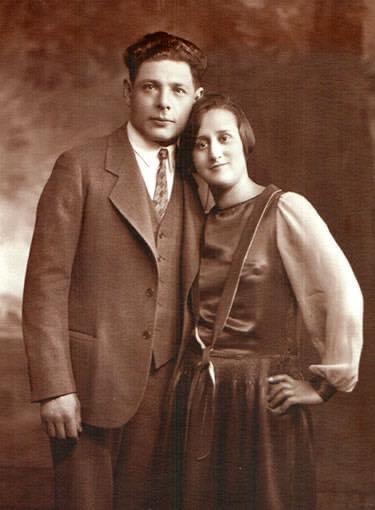
#secular-jew#israel#jewish#judaism#israeli#jerusalem#diaspora#secular jew#secularjew#islam#zabars#nyc#manhattan#new york city#deli#Jewish deli#Jewish food#bagels#lox#nova#sable#smoked fish#caviar#gourmet deli#gourmet food#pastrami#matzo ball soup
30 notes
·
View notes
Text
by Adam Levick
Jay Rayner, in a restaurant review for The Observer (sister site of The Guardian), sampled the salt beef sandwich, matzah ball soup, chopped liver, bagels, and pickles at a new Jewish deli in London called Freddie’s. (Freddie’s, London: “Over salt beef, I brood on the need to review this Jewish deli” — restaurant review, March 31).
The review was mixed. The Jewish journalist loved the salt beef sandwich, but it “pained” him to criticize the chicken soup as “desperately under-seasoned.” Something else that clearly pained him actually isn’t on the menu. Nor does it have anything whatsoever to do with the review. Though, as you’ll see in the paragraphs below, he tries desperately to imagine one:
And now I should warn you that it’s going to take a dark turn. When I first came across Freddie’s I was excited. For all my lack of faith or observance these dishes, kept alive by a vestigial memory of the shtetl, root me. Then I hesitated. Could I really write about a Jewish restaurant given the current political turmoil? Would I get abuse for doing so? Surely better to keep shtum.
At which point I knew I had no choice: I had to write about it. The horrendous campaign of the government and armed forces of Israel in Gaza cannot be allowed to make being Jewish a source of shame.
When Hamas mounted their 7 October attack on Israel, they committed both an atrocity and a provocation. With so many hostages taken, there were no good options for the Israeli government. Nevertheless, they managed to choose the very worst one. They have killed thousands, starved many more, destroyed homes and turned their country into a pariah. As it happens, they have also made life for Jews who live outside Israel and have no responsibility for the decisions its government takes, so very much harder. I deplore what Israel is doing. But that doesn’t mean I can “refute” my Jewishness. That is a surrender to antisemitism. And so I sit here with my terrific salt beef sandwich and my chocolate mousse, indulging that bit of my Jewish identity which makes sense to me. It’s not much, but it’s all I have. [emphasis added]
Life for the British Jewish community has indeed been much, much harder since Oct. 7.
The CST reported 4,103 instances of anti-Jewish hate in 2023, 2,699 (66%) of which occurred on or after October 7. This figure alone, they note, “exceeds any previous annual antisemitic incident total recorded by CST, and marks an increase of 589% from the 392 instances of antisemitism reported to CST over the same time period in 2022″ [emphasis added].
However, Rayner’s suggestion that the decisions of Israel’s government has made life for Jews “so very much harder” is itself a classic (and codified) trope that has been used by antisemites — blaming Jews in Israel for the racist actions of non-Jews in the UK.
It’s amazing that this even needs to be stated, but the only ones responsible for increased antisemitism — in the UK or anywhere else — are those committing antisemitic acts. Even if you buy into the author’s argument that Jerusalem’s military decisions since the barbarism of Oct. 7 have been the “worst” ones possible, or subscribe to the specific lie that Israel has intentionally “starved” Gazans, what people — other than those who are already predisposed to hating Jews — would take their anti-Israel fury out on diaspora Jews?
Only at The Guardian, would a Jewish restaurant critic writing a review about salt beef, bagels, and shmears feel the need to condemn and distance himself from the Jewish State.
12 notes
·
View notes
Text

Not gonna lie, that sandwich looks amazing. I'd have to split it with my wife and my mom and my daughter (but just the pastrami, she won't eat poultry because she likes birds) and have leftovers for a few days. But still.
4 notes
·
View notes
Photo
Russ & Daughters, which blessedly still exists, is one of the very few authentic Jewish delis left in the city. Opened in 1914, it is now operated by the fourth generation of the Russ family.

Uncredited Photographer Russ and Daughters Deli, Houston St, Lower East Side, New York City c.1930
#vintage New York#1930s#Russ & Daughters#deli#Jewish deli#Lower East Side#Russ family#bagels#sturgeon#herring#Sturgeon Queens#smoked salmon#lox
182 notes
·
View notes
Text
Wise Sons Jewish Deli, 9552 Washington Blvd, Culver City, CA 90032
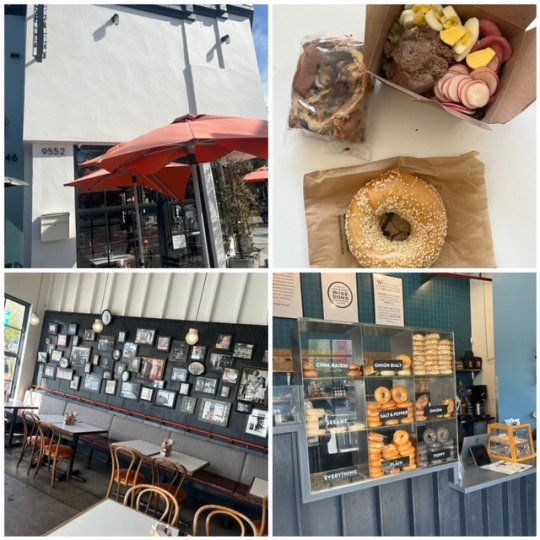
It’s been many years since I’ve been to Wise Sons because I moved to LA…forgot that they opened in Culver City in 2021. The interior design with the family photos and the menu board reminded me of the SF location.
Wise Sons Culver City offers Jewish deli sandwiches (e.g., Reuben, schnitzel, smoked trout), deli classics (e.g., latkes, matzo ball soup), sides, breakfast sandwiches, bagels, French toast, etc. You can also get coffee, tea, and drinks. They make their own pastrami and bagels. They also use cage-free eggs, sustainably farmed fish, non-GMO beef, etc. Housebaked goods include babka, rugelach and breads (rye, challah, seeded wheat).
* Chocolate babka slice ($5): moist, thick slice with lots of mini chocolate chips, not super sweet, topped with a crunchy crumble
* Chopped liver plate ($9): pickled onion, radish, hard-boiled egg, served with rye toast. For some reason, mine didn’t come with rye toast but it did include fresh butter lettuce leaves. Tasty…creamy and rich chopped liver, creamy egg, crunchy radish and tangy onions.
* Sesame bagel: on the small side and the sesame seeds fell off easily, the bagel had a firm crust and was fairly firm throughout. I seemed a bit dry but it was late in the afternoon.
Still loving the décor – it feels like a modern deli but homey because of the family photos. Classy white and black color scheme. Traffic is hard to find in the area.
4 out of 5 stars
By Lolia S.
#Wise Sons Jewish Deli#Jewish food#Jewish deli#bagels#latkes#babka#pastrami sandwich#Culver City#matzo ball soup
1 note
·
View note
Text
8 Reasons to Visit Zaidy's Now
8 Reasons to Visit Zaidy's Deli & Bakery Now
In 2021, an iconic Colorado restaurant re-opened after the original (open for 35 years!) closed in 2020 due to the pandemic. There have always been good reasons to visit Zaidy’s Deli & Bakery but there are even more now that they’ve expanded into the 2400-square-foot space next door, opening a handy market. Here are eight of those reasons to motivate you to go check it out. Save this article to…

View On WordPress
#bagels#baked goods#breakfast#Denver restaurants#Jewish Deli#lunch#patios#restaurants#Zaidy&039;s Deli & Bakery
0 notes
Note
okay i GOTTA ask- is noel polish???? my guy knows what babka is and I'm not sure if that's just from general exposure to some good polish delis in new york or if he was raised on that stuff (and if he was...... i would absolutely LOVE to know his thoughts on pierogi and sauerkraut)



Love how Noel is turning into the food guy, he knows how to cook and he has god tier taste in food
#you know he’s got a favorite polish-jewish deli he frequents in New York#DEFINITELY has some in Arkham he would take Roland to often#he likes to take the boyfriends out on the town trying different restaurants and cafes and delis and bakeries#opening up Arthur’s poor English mind to the beauty of Polish cuisine#and Jewish and Italian and Egyptian and any other kind that catches his taste buds#bros crazy#ask#arthur lester and his three boyfriends
438 notes
·
View notes
Text
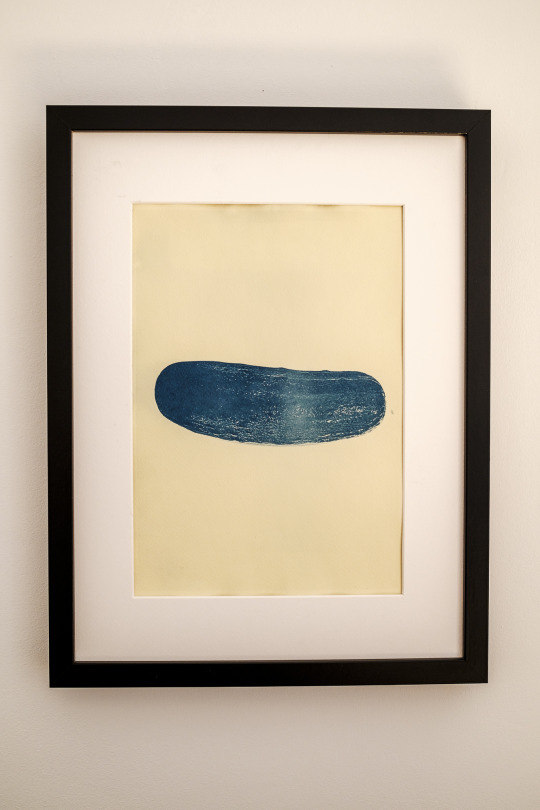
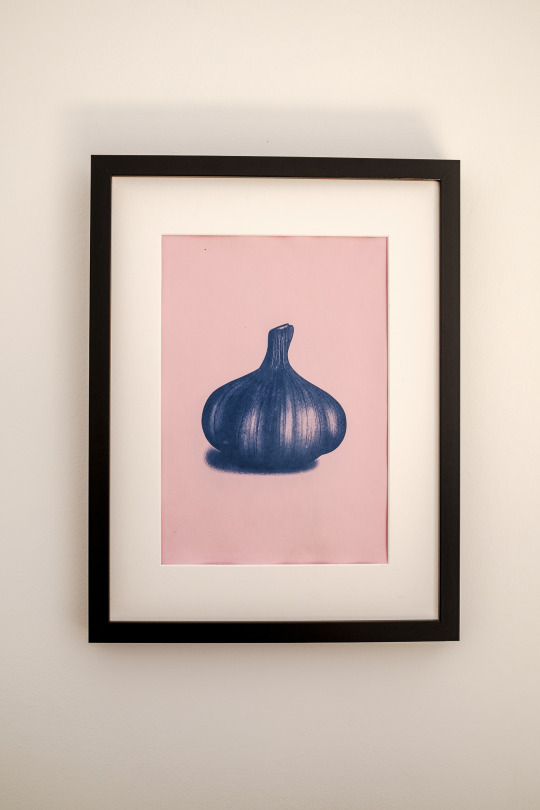
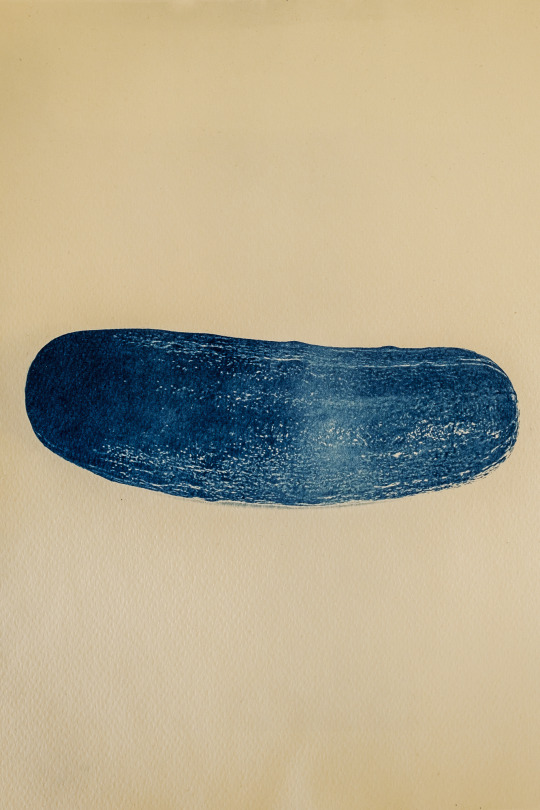
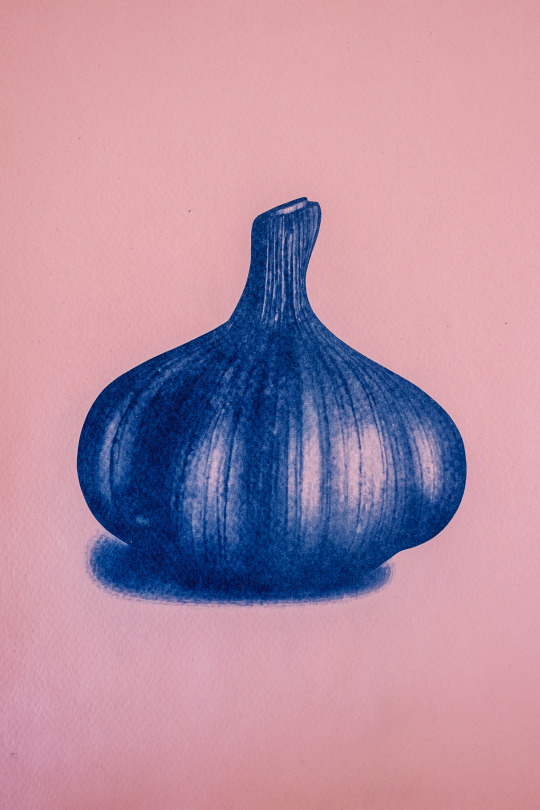
I wanted to celebrate with these two prints that I made, a long history that jewish people, garlic and pickles have. You can purchase these print via my Etsy shop.
And here's the history:
Already in ancient times, garlic was a central part of celebrating Shabbat. The Talmud devotes several passages to talking about garlic, explaining that it is a key part of Shabbat meals. “With what does one delight in the day of Shabbat?” the Talmud asks, recording an answer provided by Rav Yehuda, son of Rav Shmuel bar Sheilat, who recalled the words of his teacher Rav: “With a dish of beetroot, and a large fish, and heads of garlic” (TalmudShabbat 11b). Elsewhere, the Talmud refers to Jews who celebrate Shabbat as “garlic eaters,” so closely identified was Shabbat dinner and lunch with this fragrant vegetable. (Talmud Nedarim 31a)
Even later on, in the medieval times, the conncetion between jews and garlic was quite close. In fact, it helped the community to survive! In Istanbul, when Jews avoided the plague during a terrible epidemic, it was said that the virus did not penetrate the Jewish area because of the smell of garlic. Jews hung bulbs of garlic outside their doors to ward off the plague as a talisman and sign of good luck. The food historian Gil Marks adds: “Historically, the addition of garlic was among the typical Jewish touches that enhanced local dishes. In many cultures, the presence of garlic marked a dish as Jewish.”
In Germany, in the towns of Speyer, Worms and Mainz were home to large, vibrant Jewish communities. A popular acronym for these areas took the first letter from each town – S, W (which is written with a double “U” sound in Hebrew) and M – echoed the Hebrew word for garlic, shoom. The area was known as Kehillas Shoom (or SchUM) – the community of “Shum”, or garlic in Hebrew.
So identified were German Jews with garlic that some anti-Semitic images persist from the Middle Ages and Renaissance, depicting Jews holding or posing with bulbs of garlic.

But jews and pickles go back for a long time too. Eastern European Jews brought their pickle-making traditions to America in the late 19th and early 20th centuries and made it famous there. Pickled cucumbers were an important part of their diet due to the need for preserving food in harsh climates in Eastern Europe, where was a common practice to collect and preserve pickles in order to survive winter. Everything could be pickled, from lemons to carrots, with varying degrees of culinary success.
Some took the cucumber, a cheap, accessible vegetable, preserved it in the spring to make them last through the winter and feasted on it throughout the year. Some of those people were Jews and thus the Jewish love affair with pickling began, as a way of keeping vegetables hygienic and healthy.
Fermantation itself as has a biblical orgin in various places. Perhaps the best-known early reference to fermented food is the Passover story in Exodus (12:39): When the Jews were "thrust out of Egypt, and could not tarry," their dough could not rise (through fermentation). We know this unleavened bread as matzo. But when they left Egypt, after some time, their longing for these goods came up: "We remember the fish which we were wont to eat in Egypt for nought; the cucumbers, and the melons, and the leeks, and the onions, and the garlic” It’s likely that the cucumbers mentioned by our Jewish forebears were pickled in some way. Ancient cucumbers tasted extremely bitter and the ancient Egyptians “cooked” their cucumbers by lightly fermenting them. The resulting pickled vegetables were slightly alcoholic, and were seemingly eaten for their mind-altering properties.
#jewish#jumblr#print#pickle#garlic#organic#food#fermentation#pickling#tradition#eastern europe#delicacy#deli#garlics#onions#cucumber#pickles#cyanotype#judaism#jewish history#food history#etsy#sale#art#cyanotype print#sunprint#original#decoration
176 notes
·
View notes
Note
I think our mom would describe the way that bagel is cut as antisemitic
how do you cut a bagel any other way its a Circle.
#not a tag#from saph#EVERY BAGEL PLACE IVE EVER BEEN TO CUTS THEM THIS WAY ANON WHAT DO U MEAN#(yes this includes jewish delis)#(anon im lost)
63 notes
·
View notes
Text
i want latkes... but i really do not want to Make latkes. the eternal dilemma
6 notes
·
View notes
Text
Do you know this Jewish character?

#jumblr#jewish characters#ellie glantz#Ellie's Deli: Wishing on Matzo Ball Soup#jewish story premise#okay this looks soooooooo cute
7 notes
·
View notes
Text
The relationship between a Jewish person who lives somewhere with a small Jewish population and the One Jewish Deli in their city
21 notes
·
View notes
Text





[We're at The General Muir, and I got to tell you something. We just had good, old-school, New York-style pastrami. And that's just the beginning of Chef Todd Ginsberg's legit Jewish-deli lineup. What's your favorite thing on the menu?]
#s23e07 beef it up#guy fieri#guyfieri#diners drive-ins and dives#good old-school new york-style pastrami#the general muir#chef todd ginsberg#legit jewish-deli lineup#favorite thing#something#beginning#menu
3 notes
·
View notes
Text
Got caught up with d20 anyway love that Delissandro Katzon is bringing some much needed half-jewish half-Italian representation to the dimension 20 pc line-up.
#deli is a njb (nice jewish boy)#this is one of my stupider jokes#d20#dimension 20#the ravening war#d20 the ravening war#d20 trw#thane delissandro katzon#deli katzon#calorum#a crown of candy
63 notes
·
View notes
Text
Yo, the High Holidays are coming up -- who is ready to rectify a great wrong and create fanworks about JEWISH CRUTCHIE?
Other confirmed or plausibly Jewish characters in Newsies: David, Les, Sarah, and their parents. Joe Pulitzer and Katherine. Mr. Wiesel. Morris and Oscar. Mush Meyers. Seitz and Hannah. Mr. Jacobi.
I am not Jewish and can't write about this knowledgeably but am super down to read it!
#jewish crutchie#crutchie morris#jacobs siblings#katherine pulitzer#delancey brothers#mush myers#wiesel newsies#jacobi deli#newsies#92sies#livesies#uksies#david jacobs
33 notes
·
View notes